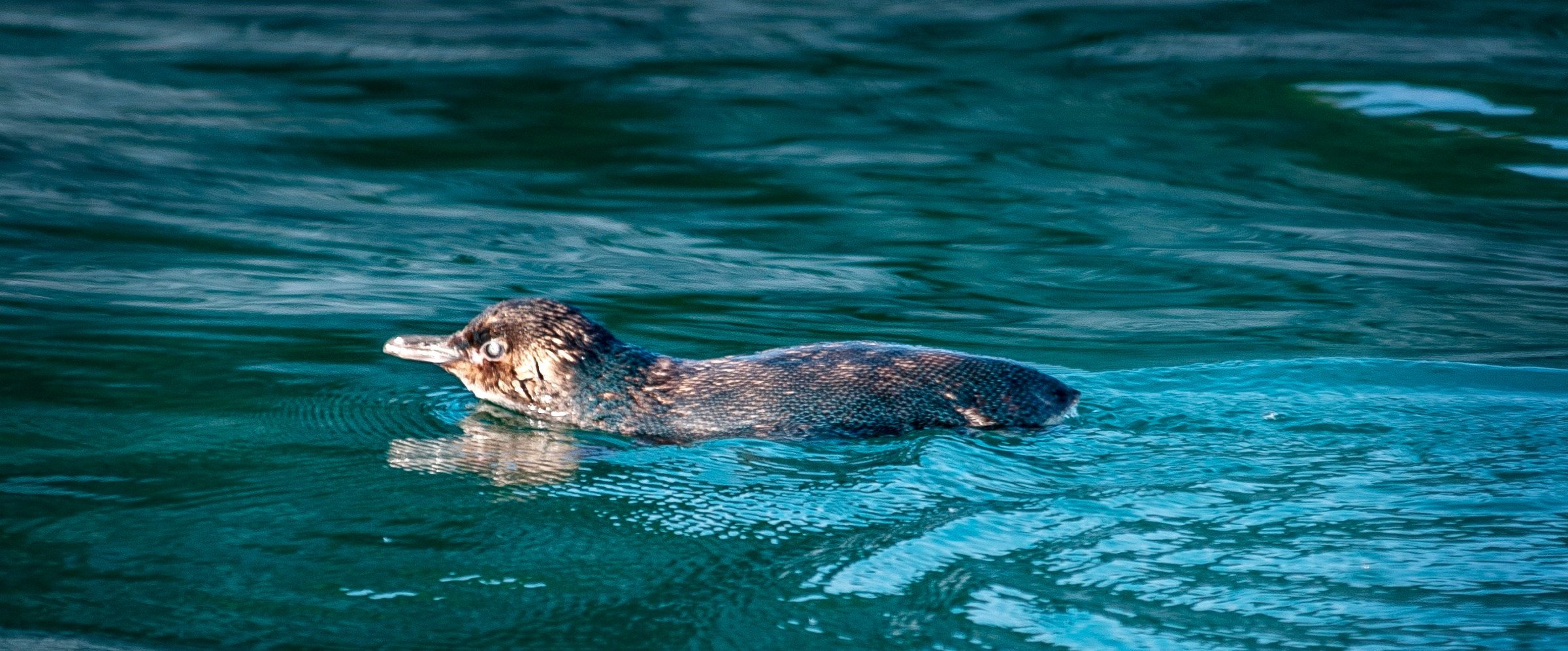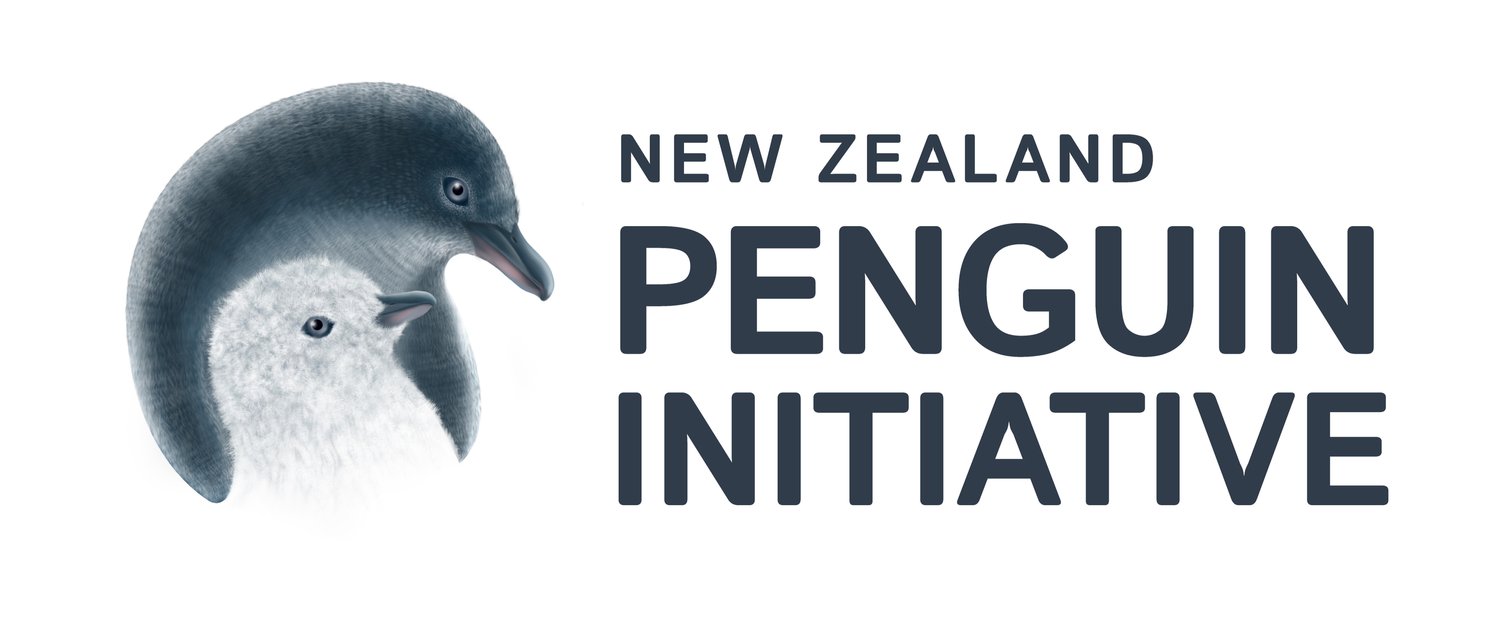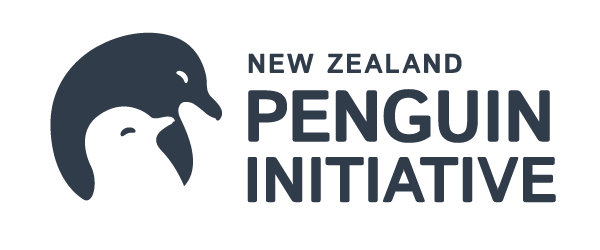
Improving The Livelihoods, Habitats & Well-being Of Penguins On A National Scale
Who is NZPI?
The New Zealand Penguin Initiative (NZPI) is an independent penguin conservation organisation working to enhance and protect the conservation status of NZ penguin species and their habitats. We support community conservation groups across New Zealand and strengthen collaboration and united penguin conservation effort in Aotearoa — because we’re stronger when we work together!
NZPI’s core priority is the conservation of kororā/little penguins by supporting groups throughout New Zealand to monitor and protect their local penguin populations by identifying and mitigating threats.
Data collected by the groups contributes to the NZPI national database, providing crucial nationwide population trends, which can be used to influence decision making policies that ensure a better future for penguins.
NZPI is under the affiliation of the Environmental Law Initiative (ELI)
Click on the ELI logo to learn more about their work combining science and law to protect the environment and biodiversity
Founded in 2019- by the New Zealand T-Gear Charitable Trust
Inspired by recognition of human impacts on penguin populations and the need for a co-ordinated and collaborative approach towards a national monitoring network focused on research and advocacy to improve penguin conservation in the community
About the Founders
The T/Gear Charitable Trust, which also has a Canadian counterpart, has been in existence for 17 years and supports a range of existing charities in conservation, education, and social initiatives. T-Gear has supported bird conservation in Aotearoa through the Birds New Zealand Research Fund (BNZRF) - Birds New Zealand (birdsnz.org.nz) since 2013 and has funded and supported many projects including penguins. T-Gear has also funded the development of a national database of known penguin colonies in New Zealand.
How We Work
-
Community Empowerment
Most penguin conservation in NZ is undertaken by passionate volunteer groups who do it for the love, not the money. We provide free guidance, data, equipment and resources to the volunteers, groups, iwi, hapū and other organisations who are engaged in penguin protection and rehabilitation across the country. We also provide channels for the groups to connect them with scientists and other groups, sharing developments, tips, advice and successes.
-

Marine Science
We facilitate research into the ecology, threats and behavior of key penguin species. We also collaborate with marine scientists to identify and map regions where human impacts are likely to impact penguin colonies. We use this research to develop evidence-based conservation plans and priorities to guide national conservation efforts and improve the livelihood, wellbeing and habitats of penguins on a national scale.
-

Data Management
There isn’t a wealth of data on penguins in NZ to date, but we’re making it easier for groups to get accurate, up-to-date penguin data to inform their conservation plans. Our monitoring programmes collect live information on penguin species, populations, conservation status, breeding success, habitats, ecosystem changes and threats. We work closely with marine scientists to assess the data, which is being developed into a user-friendly national penguin database that all groups can access from anywhere with an Internet connection.
-

Advocacy
Many people are simply unaware of the threat’s penguins are facing in today’s world. A large part of our role involves educating the public and local communities about actions they can take to protect penguins and their habitats. We develop educational material for a variety of contexts, and advocate for stronger policies and laws that better protect these precious birds.
Meet the Team
-

Hiltrun Ratz
PROGRAMME DIRECTOR
Hiltrun came to New Zealand in 1991 to start a PhD on the Ecology and habitat use of introduced mammalian predators of Yellow-eyed penguins, a conservation focused thesis with the aim of reducing predation of penguin chicks. She started working part time for Penguin Place, a private conservation tourism venture on the Otago Peninsula in 1994 and full time after graduating in 1997. As the scientist, her job was to monitor the Yellow-eyed penguin breeding colonies, assist in the rehabilitation facility, train and inform tour guides about the penguins, as well as monitor a small Little penguin colony.
She left in 2013 and started to contribute to the work of Penguin Rescue at Moeraki, North Otago and is still involved in the data collection and collation as well as fund raising and advocacy there. In 2016, she began work for Blue Penguins Pukekura, an ecotourism venture based at Taiaroa Head/Pukekura initially finding and micro-chipping little penguins at Pilots Beach / Takiharuru and to enumerate and monitor the little penguins there. In 2021 she joined the New Zealand Penguin Initiative as a penguin scientist to support and advise community groups interested in penguin conservation throughout New Zealand with the aim of understanding and ameliorating threats to the future of the species.
-

Melissa McLuskie
COMMUNITY PROGRAMME MANAGER
Melissa has had a passion for wildlife and conservation from a young age. She has a background in zookeeping, wildlife veterinary nursing and obtained her Bachelor of Science in 2016, which helped her gain an understanding of conservation practices and wildlife management.
She has had the privilege of working with and advocating for the protection of little penguin/kororā in the Bay of Plenty for several years with a focus on scientific research, rescue/rehabilitation, habitat restoration and community engagement events, before relocating to the West Coast in 2023 and becoming part of the NZPI team.
Melissa is dedicated to reducing human-wildlife conflict, improving wildlife habitats and hopes to inspire communities to look after their local penguin colonies to ensure they are around for future generations and continue to be an important part of terrestrial and marine ecosystems.



